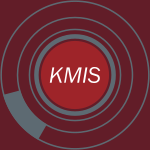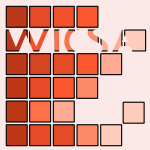79 papers:
 CHI-2015-GunaratneN #behaviour #performance #user interface #using
CHI-2015-GunaratneN #behaviour #performance #user interface #using- Informing and Improving Retirement Saving Performance using Behavioral Economics Theory-driven User Interfaces (JG, ON), pp. 917–920.
 ICEIS-v1-2015-BorgesDRAS #approach #generative #using
ICEIS-v1-2015-BorgesDRAS #approach #generative #using- An Economic Approach for Generation of Train Driving Plans using Continuous Case-based Planning (APB, OBD, RR, BCÁ, EES), pp. 440–451.
 REFSQ-2015-RazavianG #requirements
REFSQ-2015-RazavianG #requirements- Consonance Between Economic and IT Services: Finding the Balance Between Conflicting Requirements (MR, JG), pp. 148–163.
 ISMM-2015-CameronSV #multi
ISMM-2015-CameronSV #multi- The judgment of forseti: economic utility for dynamic heap sizing of multiple runtimes (CC, JS, DV), pp. 143–156.
 STOC-2014-DobzinskiNO #interactive #performance
STOC-2014-DobzinskiNO #interactive #performance- Economic efficiency requires interaction (SD, NN, SO), pp. 233–242.
 CHI-2014-ArreolaMFCCW #design
CHI-2014-ArreolaMFCCW #design- From checking on to checking in: designing for low socio-economic status older adults (IA, ZM, MF, KC, KEC, GEW), pp. 1933–1936.
 CHI-2014-Dillahunt #community #social
CHI-2014-Dillahunt #community #social- Fostering social capital in economically distressed communities (TD), pp. 531–540.
 CHI-2014-MazmanianE #comprehension #constant
CHI-2014-MazmanianE #comprehension #constant- The product of availability: understanding the economic underpinnings of constant connectivity (MM, IE), pp. 763–772.
 CSCW-2014-GavilanesMQ #bound #communication #social #twitter
CSCW-2014-GavilanesMQ #bound #communication #social #twitter- Twitter ain’t without frontiers: economic, social, and cultural boundaries in international communication (ROGG, YM, DQ), pp. 1511–1522.
 CSCW-2014-QuattroneMC #behaviour
CSCW-2014-QuattroneMC #behaviour- Mind the map: the impact of culture and economic affluence on crowd-mapping behaviours (GQ, AJM, LC), pp. 934–944.
 DUXU-DI-2014-Wanner #design #empirical #game studies #simulation
DUXU-DI-2014-Wanner #design #empirical #game studies #simulation- Serious Economic Games: Designing a Simulation Game for an Economic Experiment (DW), pp. 782–793.
 SIGIR-2014-Azzopardi #interactive #modelling
SIGIR-2014-Azzopardi #interactive #modelling- Modelling interaction with economic models of search (LA), pp. 3–12.
 SIGIR-2014-LourencoVPMFP #analysis #sentiment
SIGIR-2014-LourencoVPMFP #analysis #sentiment- Economically-efficient sentiment stream analysis (RLdOJ, AV, AMP, WMJ, RF, SP), pp. 637–646.
 HCI-AS-2013-NouriT #game studies #online
HCI-AS-2013-NouriT #game studies #online- A Cross-Cultural Study of Playing Simple Economic Games Online with Humans and Virtual Humans (EN, DRT), pp. 266–275.
 KDIR-KMIS-2013-CechTBH #complexity #modelling #multi
KDIR-KMIS-2013-CechTBH #complexity #modelling #multi- Modelling Complexity of Economic System with Multi-Agent Systems (PC, PT, VB, MH), pp. 464–469.
 ESEC-FSE-2013-KumarN #static analysis #tool support
ESEC-FSE-2013-KumarN #static analysis #tool support- The economics of static analysis tools (RK, AVN), pp. 707–710.
 ICSE-2013-BrownAR #scalability
ICSE-2013-BrownAR #scalability- Agility at scale: economic governance, measured improvement, and disciplined delivery (AWB, SA, WR), pp. 873–881.
 VLDB-2012-Sahin #challenge #clustering #self
VLDB-2012-Sahin #challenge #clustering #self- Challenges in Economic Massive Content Storage and Management (MCSAM) in the Era of Self-Organizing, Self-Expanding and Self-Linking Data Clusters (KES), p. 1698.
 VLDB-2012-XuLGC #analysis #big data #clustering #in the cloud #interactive #named #visual notation
VLDB-2012-XuLGC #analysis #big data #clustering #in the cloud #interactive #named #visual notation- CloudVista: Interactive and Economical Visual Cluster Analysis for Big Data in the Cloud (HX, ZL, SG, KC), pp. 1886–1889.
 IFL-2012-IonescuJ #modelling #programming
IFL-2012-IonescuJ #modelling #programming- Dependently-Typed Programming in Scientific Computing — Examples from Economic Modelling (CI, PJ), pp. 140–156.
 ICPR-2012-TanLZ #dataset
ICPR-2012-TanLZ #dataset- The dataset system of Economic Dispute handwritten (DSEDH) based on stroke shape and structure features (JT, JHL, XXZ), pp. 661–664.
 KMIS-2012-Bani-HaniHJ #enterprise
KMIS-2012-Bani-HaniHJ #enterprise- Economic Benefits of an ERP System to a Low Tech SME (AIBH, CJH, TWJ), pp. 285–289.
 CASE-2011-DahaneR #multi #outsourcing
CASE-2011-DahaneR #multi #outsourcing- Economic model of outsourcing for a subcontractor manufacturing system in a single subcontractor — multi-outsourcers relationship (MD, NR), pp. 450–455.
 SEFM-2011-Sanchez #using
SEFM-2011-Sanchez #using- Using System Dynamics to Assess the Role of Socio-economic Status in Tuberculosis Incidence (MAS), pp. 464–475.
 CHI-2011-LeeKF #behaviour #design #mining #persuasion
CHI-2011-LeeKF #behaviour #design #mining #persuasion- Mining behavioral economics to design persuasive technology for healthy choices (MKL, SBK, JF), pp. 325–334.
 HCI-UA-2011-Levis #communication #towards #using #women
HCI-UA-2011-Levis #communication #towards #using #women- Working toward Women’s Economic Empowerment: Using Information and Communication Technology in Developing Areas to Market Traditional Crafts (MSL), pp. 266–273.
 HCI-UA-2011-VijayaraghavanP #automation #e-commerce #knowledge base
HCI-UA-2011-VijayaraghavanP #automation #e-commerce #knowledge base- Socio Economic Psycho Knowledge Based Intelligent Agents for Automated e-Commerce Negotiation (PV, RP), pp. 274–284.
 HIMI-v2-2011-KwackKC #analysis #mobile
HIMI-v2-2011-KwackKC #analysis #mobile- Economic Analysis of SON-Enabled Mobile WiMAX (SK, JK, JC), pp. 268–277.
 IDGD-2011-WongLL
IDGD-2011-WongLL- The Entwined Economic and Cultural Issues in the Production of Barbie in Taiwan, Taishan (JJW, RL, ZAL), pp. 417–426.
 ICEIS-v2-2011-ChenZ11b #development #interactive #research
ICEIS-v2-2011-ChenZ11b #development #interactive #research- The Research on the Interaction Effects of Rural Logistics and Economic Development (XC, JZ), pp. 167–171.
 ICEIS-v2-2011-Jiang11a #enterprise
ICEIS-v2-2011-Jiang11a #enterprise- Information Innovation of Construction Enterprises with Macro-economic Readjustment (JJ), pp. 323–326.
 ICEIS-v3-2011-WangCLX #evaluation #process
ICEIS-v3-2011-WangCLX #evaluation #process- Application of Analytic Hierarchy Process on Calculating the Weights of Economic Model Evaluation (DW, DC, NL, JX), pp. 108–116.
 ICEIS-v4-2011-ShiL #analysis
ICEIS-v4-2011-ShiL #analysis- Analysis of the Economic Benefit of Used Batteries based on Reverse Logistics (XS, ZL), pp. 736–742.
 SIGIR-2011-Azzopardi #information retrieval #interactive
SIGIR-2011-Azzopardi #information retrieval #interactive- The economics in interactive information retrieval (LA), pp. 15–24.
 ITiCSE-2010-Yeti
ITiCSE-2010-Yeti- Science, technology and innovation: a key driver for economic growth (NY), p. 1.
 CHI-2010-LiuLRLWL #how #mobile
CHI-2010-LiuLRLWL #how #mobile- How socio-economic structure influences rural users’ acceptance of mobile entertainment (JL, YL, PLPR, HL, XW, DL), pp. 2203–2212.
 ISMM-2010-SingerJBL #garbage collection
ISMM-2010-SingerJBL #garbage collection- The economics of garbage collection (JS, REJ, GB, ML), pp. 103–112.
 SIGAda-2009-Barkstrom #ada #algorithm #concurrent #multi #on the #problem #using
SIGAda-2009-Barkstrom #ada #algorithm #concurrent #multi #on the #problem #using- On using Ada to solve problems in computational economics and related disciplines with concurrent, multiagent algorithms (BRB), pp. 61–72.
 CIKM-2009-TangSB #string
CIKM-2009-TangSB #string- Space-economical partial gram indices for exact substring matching (NT, LS, PAB), pp. 285–294.
 KMIS-2009-Bolisani #analysis #modelling #transaction
KMIS-2009-Bolisani #analysis #modelling #transaction- Modelling Cognitive Transactions for Economic and Accounting Analysis (EB), pp. 242–247.
 SPLC-2009-Fernandez-AmorosGS #diagrams #feature model #modelling #product line
SPLC-2009-Fernandez-AmorosGS #diagrams #feature model #modelling #product line- Inferring information from feature diagrams to product line economic models (DFA, RHG, JACS), pp. 41–50.
 WICSA-2008-BahsoonE #approach #architecture #distributed #scalability
WICSA-2008-BahsoonE #approach #architecture #distributed #scalability- An Economics-Driven Approach for Valuing Scalability in Distributed Architectures (RB, WE), pp. 9–18.
 ITiCSE-2008-AdamsH #education
ITiCSE-2008-AdamsH #education- Building an economical VR system for CS education (JCA, JH), pp. 148–152.
 SEKE-2008-BahsoonE #mining
SEKE-2008-BahsoonE #mining- An Example on Economics-driven Software Mining (RB, WE), pp. 375–380.
 ISSTA-2008-DoR #analysis #modelling #testing #using
ISSTA-2008-DoR #analysis #modelling #testing #using- Using sensitivity analysis to create simplified economic models for regression testing (HD, GR), pp. 51–62.
 CASE-2007-JacksonCM
CASE-2007-JacksonCM- A Rationale for the use of Optical Mice Chips for Economic and Accurate Vehicle Tracking (JDJ, DWC, JM), pp. 939–944.
 ICSM-2007-CapraFM #analysis #empirical #maintenance #open source
ICSM-2007-CapraFM #analysis #empirical #maintenance #open source- The Economics of Open Source Software: An Empirical Analysis of Maintenance Costs (EC, CF, FM), pp. 395–404.
 HIMI-IIE-2007-Liu07a #assessment #behaviour #industrial
HIMI-IIE-2007-Liu07a #assessment #behaviour #industrial- Economic Assessment of Industrial Accidents Caused by Abnormal Behaviors (HL), pp. 1067–1071.
 ICSE-2006-MutschlerBR #design #evaluation #framework
ICSE-2006-MutschlerBR #design #evaluation #framework- Designing an economic-driven evaluation framework for process-oriented software technologies (BM, JB, MR), pp. 885–888.
 ISSTA-2006-Wagner #analysis #detection #quality
ISSTA-2006-Wagner #analysis #detection #quality- A model and sensitivity analysis of the quality economics of defect-detection techniques (SW0), pp. 73–84.
 DAC-2005-NowakR #question
DAC-2005-NowakR #question- Are there economic benefits in DFM? (MN, RR), pp. 767–768.
 ICEIS-v3-2005-PereiraTS #analysis #development
ICEIS-v3-2005-PereiraTS #analysis #development- Sustainable Development and Investment in Information Technologies: A Socio-Economic Analysis (MJP, LVT, RS), pp. 81–88.
 SPLC-2005-Clements #contest #modelling #product line
SPLC-2005-Clements #contest #modelling #product line- A Competition of Software Product Line Economic Models (PCC), p. 136.
 ICEIS-v2-2004-CuellarFJN #adaptation #network #predict
ICEIS-v2-2004-CuellarFJN #adaptation #network #predict- An Adaptable Time-Delay Neural Network to Predict the Spanish Economic Indebtedness (MPC, WF, MdCPJ, RPP, MAN), pp. 457–460.
 ICEIS-v2-2003-ChenW #game studies
ICEIS-v2-2003-ChenW #game studies- Computer Games and Economics Experiments (KYC, RW), pp. 43–51.
 ESEC-FSE-2003-MullerP #agile #evaluation #on the
ESEC-FSE-2003-MullerP #agile #evaluation #on the- On the economic evaluation of XP projects (MMM, FP), pp. 168–177.
 CSEET-2002-PortB #tutorial
CSEET-2002-PortB #tutorial- Tutorial 1: Introducing Software Economics within SWE Project Courses (DP, BWB), p. 266.
 ICPR-v2-2002-RidderPD #classification #complexity #fault
ICPR-v2-2002-RidderPD #classification #complexity #fault- The Economics of Classification: Error vs. Complexity (DdR, EP, RPWD), pp. 244–247.
 FSE-2002-CapraEM #approach #mobile
FSE-2002-CapraEM #approach #mobile- A micro-economic approach to conflict resolution in mobile computing (LC, WE, CM), pp. 31–40.
 ICSE-2002-ErdogmusBHRS #re-engineering
ICSE-2002-ErdogmusBHRS #re-engineering- Software engineering economics: background, current practices, and future directions (MHE, BWB, WH, DJR, KJS), pp. 683–684.
 PASTE-2001-Holzmann #verification
PASTE-2001-Holzmann #verification- Economics of software verification (GJH), pp. 80–85.
 FoSE-2000-BoehmS #roadmap
FoSE-2000-BoehmS #roadmap- Software economics: a roadmap (BWB, KJS), pp. 319–343.
 SIGIR-1999-Varian
SIGIR-1999-Varian- The Economics of Search (HRV), p. 1.
 ICSE-1999-NishimatsuJKI #performance #slicing
ICSE-1999-NishimatsuJKI #performance #slicing- Call-Mark Slicing: An Efficient and Economical Way of Reducing Slice (AN, MJ, SK, KI), pp. 422–431.
 ICSE-1997-Botting #on the
ICSE-1997-Botting #on the- On the Economics of Mass-Marketed Software (RJB), pp. 465–470.
 TOOLS-EUROPE-1993-Cox #named #robust
TOOLS-EUROPE-1993-Cox #named #robust- Keynote: Taming the Electronic Frontier: Robust Economics for Information Age Goods (BC), pp. 13–14.
 SAC-1993-ShnaiderHS
SAC-1993-ShnaiderHS- Expert Systems for Economic/Business Forecasting (ES, PH, MS), pp. 511–516.
 TOOLS-EUROPE-1992-Cox #reuse
TOOLS-EUROPE-1992-Cox #reuse- The Economics of Software Reuse (BC), pp. 441–442.
 ICSE-1992-GaffneyC #reuse
ICSE-1992-GaffneyC #reuse- A General Economics Model of Software Reuse (JEGJ, RDC), pp. 327–337.
 ICSE-1992-MargonoR #ada #analysis #reuse #scalability
ICSE-1992-MargonoR #ada #analysis #reuse #scalability- Software Reuse Economics: Cost-Benefit Analysis on a Large-Scale Ada Project (JM, TER), pp. 338–348.
 ICSE-1991-Jackson #detection #named
ICSE-1991-Jackson #detection #named- Aspect: An Economical Bug-Detector (DJ), pp. 13–22.
 CSCW-1990-BensonCP #social
CSCW-1990-BensonCP #social- Some Social and Economic Consequences of Groupware for Flight Crew (IB, CC, SP), pp. 119–129.
 ICALP-1983-CohenLP #distributed #problem #symmetry
ICALP-1983-CohenLP #distributed #problem #symmetry- Symmetric and Economical Solutions to the Mutual Exclusion Problem in a Distributed System (Extended Abstract) (SC, DJL, AP), pp. 128–136.
 DAC-1979-ONeillSTFFWMBE #design #performance
DAC-1979-ONeillSTFFWMBE #design #performance- Designers Workbench — efficient and economical design aids (LAO, CGS, TJT, JMF, RAF, EDW, PHM, JRB, DSE), pp. 185–199.
 SIGIR-1979-Jamieson #implementation #retrieval #scalability #using
SIGIR-1979-Jamieson #implementation #retrieval #scalability #using- The Economic Implementation of Experimental Retrieval Techniques on a Very Large Scale Using an Intelligent Terminal (SHJ), pp. 45–51.
 ICSE-1979-MorrisseyW #on the #perspective #re-engineering
ICSE-1979-MorrisseyW #on the #perspective #re-engineering- On Software Engineering — An Economic Perspective (JMM, LSYW), pp. 412–422.
 STOC-1977-PetersonF #distributed #problem
STOC-1977-PetersonF #distributed #problem- Economical Solutions for the Critical Section Problem in a Distributed System (Extended Abstract) (GLP, MJF), pp. 91–97.
 SIGIR-1971-MulfordR #scalability
SIGIR-1971-MulfordR #scalability- Data Compression Techniques for Economic Processing of Large Commercial Files (JEM, RKR), pp. 207–215.
 SHARE-1964-Bolino #aspect-oriented #automation #social
SHARE-1964-Bolino #aspect-oriented #automation #social- Economic and social aspects of automation (ACB).
 CHI-2015-GunaratneN #behaviour #performance #user interface #using
CHI-2015-GunaratneN #behaviour #performance #user interface #using ICEIS-v1-2015-BorgesDRAS #approach #generative #using
ICEIS-v1-2015-BorgesDRAS #approach #generative #using REFSQ-2015-RazavianG #requirements
REFSQ-2015-RazavianG #requirements ISMM-2015-CameronSV #multi
ISMM-2015-CameronSV #multi STOC-2014-DobzinskiNO #interactive #performance
STOC-2014-DobzinskiNO #interactive #performance CHI-2014-ArreolaMFCCW #design
CHI-2014-ArreolaMFCCW #design CHI-2014-Dillahunt #community #social
CHI-2014-Dillahunt #community #social CHI-2014-MazmanianE #comprehension #constant
CHI-2014-MazmanianE #comprehension #constant CSCW-2014-GavilanesMQ #bound #communication #social #twitter
CSCW-2014-GavilanesMQ #bound #communication #social #twitter CSCW-2014-QuattroneMC #behaviour
CSCW-2014-QuattroneMC #behaviour DUXU-DI-2014-Wanner #design #empirical #game studies #simulation
DUXU-DI-2014-Wanner #design #empirical #game studies #simulation SIGIR-2014-Azzopardi #interactive #modelling
SIGIR-2014-Azzopardi #interactive #modelling SIGIR-2014-LourencoVPMFP #analysis #sentiment
SIGIR-2014-LourencoVPMFP #analysis #sentiment HCI-AS-2013-NouriT #game studies #online
HCI-AS-2013-NouriT #game studies #online KDIR-KMIS-2013-CechTBH #complexity #modelling #multi
KDIR-KMIS-2013-CechTBH #complexity #modelling #multi ESEC-FSE-2013-KumarN #static analysis #tool support
ESEC-FSE-2013-KumarN #static analysis #tool support ICSE-2013-BrownAR #scalability
ICSE-2013-BrownAR #scalability VLDB-2012-Sahin #challenge #clustering #self
VLDB-2012-Sahin #challenge #clustering #self VLDB-2012-XuLGC #analysis #big data #clustering #in the cloud #interactive #named #visual notation
VLDB-2012-XuLGC #analysis #big data #clustering #in the cloud #interactive #named #visual notation IFL-2012-IonescuJ #modelling #programming
IFL-2012-IonescuJ #modelling #programming ICPR-2012-TanLZ #dataset
ICPR-2012-TanLZ #dataset KMIS-2012-Bani-HaniHJ #enterprise
KMIS-2012-Bani-HaniHJ #enterprise CASE-2011-DahaneR #multi #outsourcing
CASE-2011-DahaneR #multi #outsourcing SEFM-2011-Sanchez #using
SEFM-2011-Sanchez #using CHI-2011-LeeKF #behaviour #design #mining #persuasion
CHI-2011-LeeKF #behaviour #design #mining #persuasion HCI-UA-2011-Levis #communication #towards #using #women
HCI-UA-2011-Levis #communication #towards #using #women HCI-UA-2011-VijayaraghavanP #automation #e-commerce #knowledge base
HCI-UA-2011-VijayaraghavanP #automation #e-commerce #knowledge base HIMI-v2-2011-KwackKC #analysis #mobile
HIMI-v2-2011-KwackKC #analysis #mobile IDGD-2011-WongLL
IDGD-2011-WongLL ICEIS-v2-2011-ChenZ11b #development #interactive #research
ICEIS-v2-2011-ChenZ11b #development #interactive #research ICEIS-v2-2011-Jiang11a #enterprise
ICEIS-v2-2011-Jiang11a #enterprise ICEIS-v3-2011-WangCLX #evaluation #process
ICEIS-v3-2011-WangCLX #evaluation #process ICEIS-v4-2011-ShiL #analysis
ICEIS-v4-2011-ShiL #analysis SIGIR-2011-Azzopardi #information retrieval #interactive
SIGIR-2011-Azzopardi #information retrieval #interactive ITiCSE-2010-Yeti
ITiCSE-2010-Yeti CHI-2010-LiuLRLWL #how #mobile
CHI-2010-LiuLRLWL #how #mobile ISMM-2010-SingerJBL #garbage collection
ISMM-2010-SingerJBL #garbage collection SIGAda-2009-Barkstrom #ada #algorithm #concurrent #multi #on the #problem #using
SIGAda-2009-Barkstrom #ada #algorithm #concurrent #multi #on the #problem #using CIKM-2009-TangSB #string
CIKM-2009-TangSB #string KMIS-2009-Bolisani #analysis #modelling #transaction
KMIS-2009-Bolisani #analysis #modelling #transaction SPLC-2009-Fernandez-AmorosGS #diagrams #feature model #modelling #product line
SPLC-2009-Fernandez-AmorosGS #diagrams #feature model #modelling #product line WICSA-2008-BahsoonE #approach #architecture #distributed #scalability
WICSA-2008-BahsoonE #approach #architecture #distributed #scalability ITiCSE-2008-AdamsH #education
ITiCSE-2008-AdamsH #education SEKE-2008-BahsoonE #mining
SEKE-2008-BahsoonE #mining ISSTA-2008-DoR #analysis #modelling #testing #using
ISSTA-2008-DoR #analysis #modelling #testing #using CASE-2007-JacksonCM
CASE-2007-JacksonCM ICSM-2007-CapraFM #analysis #empirical #maintenance #open source
ICSM-2007-CapraFM #analysis #empirical #maintenance #open source HIMI-IIE-2007-Liu07a #assessment #behaviour #industrial
HIMI-IIE-2007-Liu07a #assessment #behaviour #industrial ICSE-2006-MutschlerBR #design #evaluation #framework
ICSE-2006-MutschlerBR #design #evaluation #framework ISSTA-2006-Wagner #analysis #detection #quality
ISSTA-2006-Wagner #analysis #detection #quality DAC-2005-NowakR #question
DAC-2005-NowakR #question ICEIS-v3-2005-PereiraTS #analysis #development
ICEIS-v3-2005-PereiraTS #analysis #development SPLC-2005-Clements #contest #modelling #product line
SPLC-2005-Clements #contest #modelling #product line ICEIS-v2-2004-CuellarFJN #adaptation #network #predict
ICEIS-v2-2004-CuellarFJN #adaptation #network #predict ICEIS-v2-2003-ChenW #game studies
ICEIS-v2-2003-ChenW #game studies ESEC-FSE-2003-MullerP #agile #evaluation #on the
ESEC-FSE-2003-MullerP #agile #evaluation #on the CSEET-2002-PortB #tutorial
CSEET-2002-PortB #tutorial ICPR-v2-2002-RidderPD #classification #complexity #fault
ICPR-v2-2002-RidderPD #classification #complexity #fault FSE-2002-CapraEM #approach #mobile
FSE-2002-CapraEM #approach #mobile ICSE-2002-ErdogmusBHRS #re-engineering
ICSE-2002-ErdogmusBHRS #re-engineering PASTE-2001-Holzmann #verification
PASTE-2001-Holzmann #verification FoSE-2000-BoehmS #roadmap
FoSE-2000-BoehmS #roadmap SIGIR-1999-Varian
SIGIR-1999-Varian ICSE-1999-NishimatsuJKI #performance #slicing
ICSE-1999-NishimatsuJKI #performance #slicing ICSE-1997-Botting #on the
ICSE-1997-Botting #on the TOOLS-EUROPE-1993-Cox #named #robust
TOOLS-EUROPE-1993-Cox #named #robust SAC-1993-ShnaiderHS
SAC-1993-ShnaiderHS TOOLS-EUROPE-1992-Cox #reuse
TOOLS-EUROPE-1992-Cox #reuse ICSE-1992-GaffneyC #reuse
ICSE-1992-GaffneyC #reuse ICSE-1992-MargonoR #ada #analysis #reuse #scalability
ICSE-1992-MargonoR #ada #analysis #reuse #scalability ICSE-1991-Jackson #detection #named
ICSE-1991-Jackson #detection #named CSCW-1990-BensonCP #social
CSCW-1990-BensonCP #social ICALP-1983-CohenLP #distributed #problem #symmetry
ICALP-1983-CohenLP #distributed #problem #symmetry DAC-1979-ONeillSTFFWMBE #design #performance
DAC-1979-ONeillSTFFWMBE #design #performance SIGIR-1979-Jamieson #implementation #retrieval #scalability #using
SIGIR-1979-Jamieson #implementation #retrieval #scalability #using ICSE-1979-MorrisseyW #on the #perspective #re-engineering
ICSE-1979-MorrisseyW #on the #perspective #re-engineering STOC-1977-PetersonF #distributed #problem
STOC-1977-PetersonF #distributed #problem SIGIR-1971-MulfordR #scalability
SIGIR-1971-MulfordR #scalability SHARE-1964-Bolino #aspect-oriented #automation #social
SHARE-1964-Bolino #aspect-oriented #automation #social









